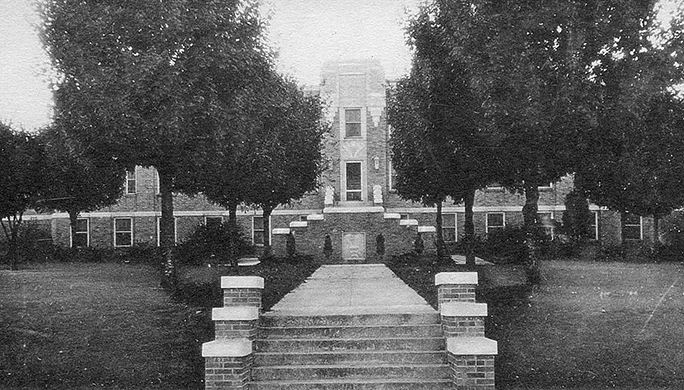Welcome!

When is a hospital not a hospital?
Maybe when it’s not even called “hospital.”
Nowadays they’re known as so-and-so “health” or such-and-such “medical center.”
I guess the NCDOT hasn’t figured that out yet since they still have the blue signs pointing to the “hospital.”
Be that as it may, hospitals — or medical centers, if you prefer — are not the same spooky, mysterious institutions they were when I was a boy. That was a place where you didn’t want to wind up because it meant something very serious was wrong with you.
I remember when one of my good buddies had to go to the hospital for an appendectomy. Man, that was scary. I went to see him in the youth ward after surgery and he looked pitiful.
Fortunately, he came out fine and we had lots of fun play times together after he recovered.
Another reason hospitals were frightening was that mean head nurse. After all, there were rules against children on the hallways and the bully head nurse was adamant that they were strictly enforced.
For a child to even consider going to see grandma in her room after her gallbladder surgery, the kid had to be at least 12 years old. “No exceptions!” the head nurse would say, pointing at the sign on the wall.
I guess the youth ward was a little less rigid since I was able to see my pal. Rules were also bent somewhat for the maternity ward. I was 6 years old when my little brother was born and I was allowed to peer at him through the nursery window.
Nowadays you and your six kids from infant to middle school can wander freely through the hallways, taking ganders through open doors at patients in bandages and strapped firmly to IV trees.
Medical science has improved significantly during the past decades. Now, after major surgery, they’ll sometimes release you after two or three days.
That was certainly not the case with my father. He was in a coal mine accident in 1940 and his femur was broken in two.
I remember him telling about the half-mile ride on the coal car and he could feel every little bump on the rails. Then he was placed in an ambulance. The driver was speeding around a curve when Daddy’s cot broke loose and crashed into the wall.
When he finally got through surgery and was taken to his room, his leg was elevated by a system of cables and weights. One night something broke and weights fell and rolled across the floor.
A few years ago, I saw Daddy’s hospital bill for his broken leg. He was a patient there for 80 days and his bill came to the astounding figure of $320, paid for by the coal company’s insurance, of course.
A similar injury these days would have the patient out in a couple of days, then a few weeks of therapy to bring him back up to snuff.
I’ve had three hip surgeries and none of them kept me in the hospital, er, medical center, for more than three nights. The worst experience I had was my second tour when I fainted while sitting in a chair.
I awoke to see three nurses cleaning up my vomit and another two or three changing my messed-up gown. The good news was that I didn’t have to suffer while gagging up my lunch.
The bad news was encountered by the women who had to change my gown.
The diagnosis for my passing out was dehydration and a drop in blood pressure. That was resolved by a fast-release IV with a fluid that hadn’t been warmed up to room temperature.
I wondered why I was shaking with chills, requiring an aide to cover me with two heated blankets.
Hospital — excuse me, medical center — stays are now made better with single rooms, cable TV, music, call buttons and much-improved food. The meals are so good that I tend to get bloated since I’m just lying there and not working off the calories.
In the long run, hospitals are more laid back since the days when that head nurse ruled with a rod of iron and surgery required at least a week in bed.
And the poor patient is no longer surrounded by nurses with those funny-looking hats.
Larry Penkava is a writer for Randolph Hub. Contact: 336-302-2189, larrypenkava@gmail.com.
